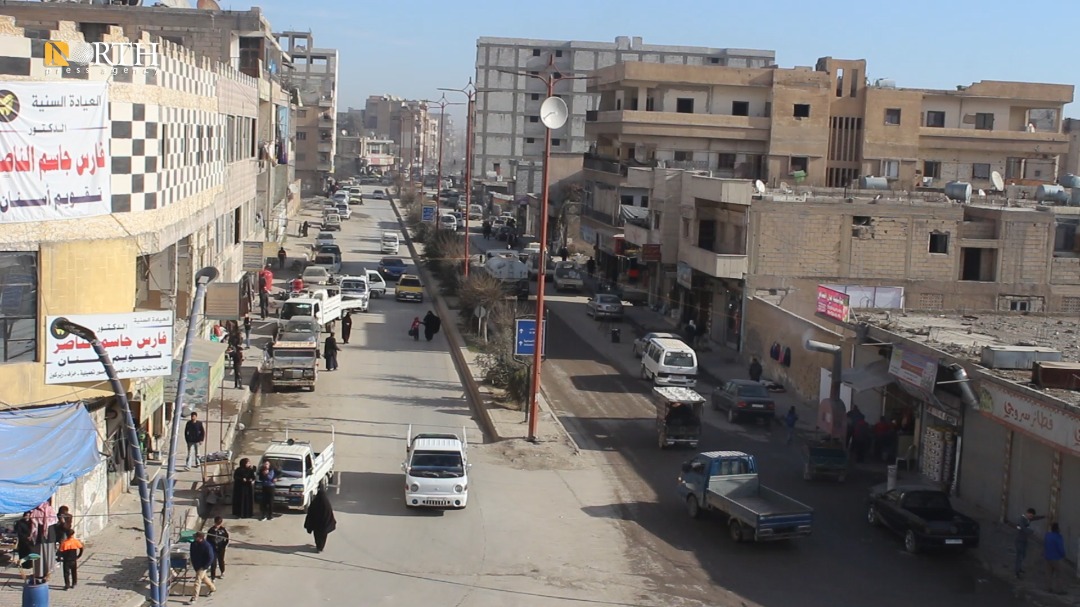RAQQA, Syria (North Press) – Residents of the city of Raqqa, north Syria, accuse some heads of local communes of taking advantage of their position to serve their acquaintances, while officials say they work voluntarily.
According to the structure of the Autonomous Administration in North and East Syria (AANES), the commune is the smallest administrative cell. It is made up of several committees and includes the residents of the neighborhood or the village, where 800 to 1,000 persons are included in one commune.
Since August 2020, 36 commune heads were dismissed in Raqqa, “for taking advantage of their position in conducting corruption,” according the General Council in Raqqa.
Favoritism
60-year-old Ali Yassin, a resident of Diriyah neighborhood in Raqqa, said some of the communes’ co-chairs are engaging in favoritism while distributing materials.
“Some of those in charge with communes do not work and delay the people’s needs, and are not nice in dealing with the residents,” he added.
The neighborhoods of Raqqa include 74 communes, in addition to others in the villages.
The communes oversee the distribution of gas, diesel, and food aid. They also give written documents concerning the person or families’ allocations for services of several institutions, like giving approvals for renting houses.
Yassin accuses some communes of writing in fake names while coordinating with the concerned organizations to distribute food aid and take those rations for themselves.
Although talks about favoritism within the communes and their committees may be common in the neighborhoods, there are other different opinions about their work.
40-year-old Omar al-Bashir, a resident of Diriyah neighborhood, said that the commune he is affiliated with “is acting perfectly, and we are satisfied with it.”
This did not prevent him from saying that “those in charge with the communes have to work honestly, as the city is full of IDPs and refugees.”
Unpaid volunteers
The co-chair of Shehid (Martyr) Aziz Jijan commune, Khalifa Suleyman, said, “I am not getting paid for my work and I rely on the money that my children send from abroad.”
The heads of the communes in Raqqa do not get stable salaries, but they are considered eligible for food aid when it is distributed. Those participating in the distribution of gas and diesel can pay 100 SYP for a gas cylinder and 250 SYP for a diesel barrel.
Suleyman complains of inconveniences due to the residents’ lack of commitment to visit the commune center during the allocated hours. “They come to my house at various times, despite allocating a specific place and time for inquiries and creating groups on the WhatsApp application.
Other commune heads say they are exposed to a lot of accusation due to their inability to satisfy all the residents.
Suleyman does not rule out that some of those he described as “weak characters” among the co-chairs put fake names in their neighborhood statistic lists when some organizations ask them to distribute relief aid.
“The main reason for corruption among communes is the absence of a monthly salary for them, as they work without pay,” he added.
Social conditions
The co-chair of the General Council in Raqqa, Lu’ai al-Issa, said that when they formed the communes, they informed the candidates that “there is not going to be any salary allocated for them from the General Council.”
He mentioned that they have a future plan to allocate monthly food supplies to the heads of the communes and pay them financial rewards, “but we are waiting for the financial support to apply this by putting observers on those responsible for the communes and questioning them; we cannot do that because they are volunteers.”
The formation of communes in Raqqa in early 2018 faced difficulties and challenges because of “lack of understanding its idea because of the tribal environment, personal factors and favoritism in the region, according to al-Issa.”
They have not fulfilled the desired goal of formatting communes, which is “to understand the communes as a societal and administrative organizational state within the neighborhood and to realize that they are not mukhtars (village chiefs) or persons with self-authority to approve the provision of services and aid,” he added.

